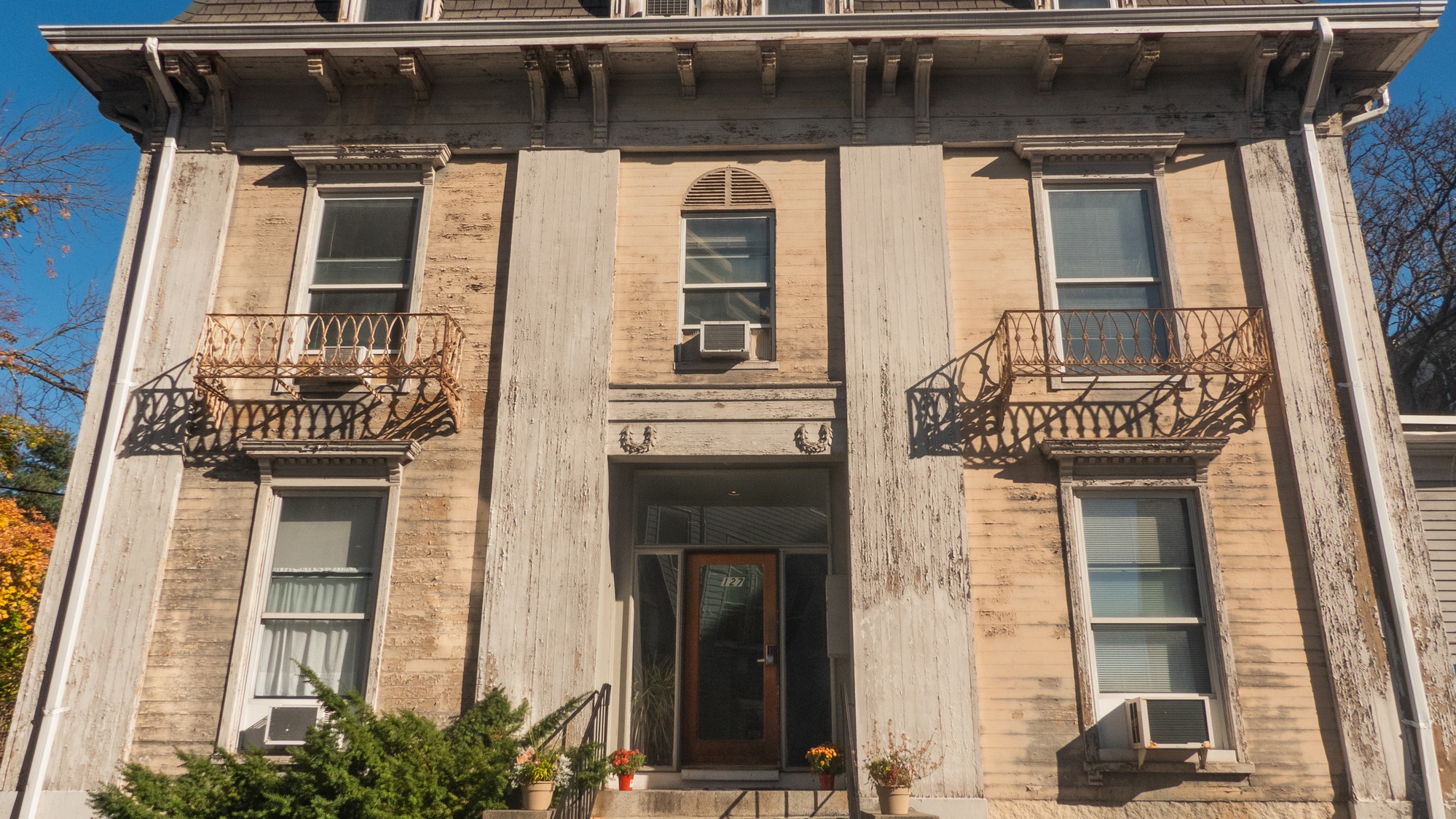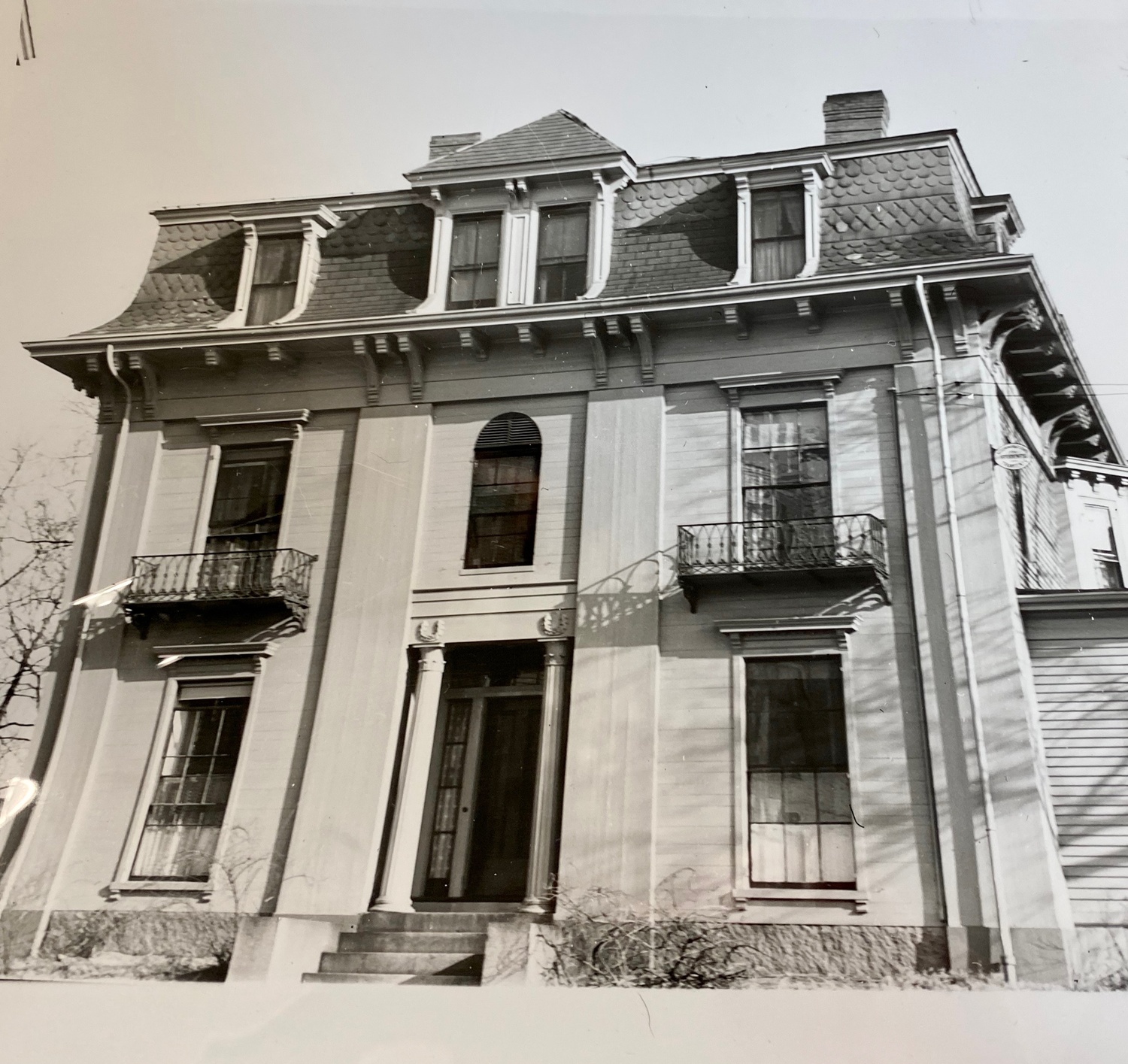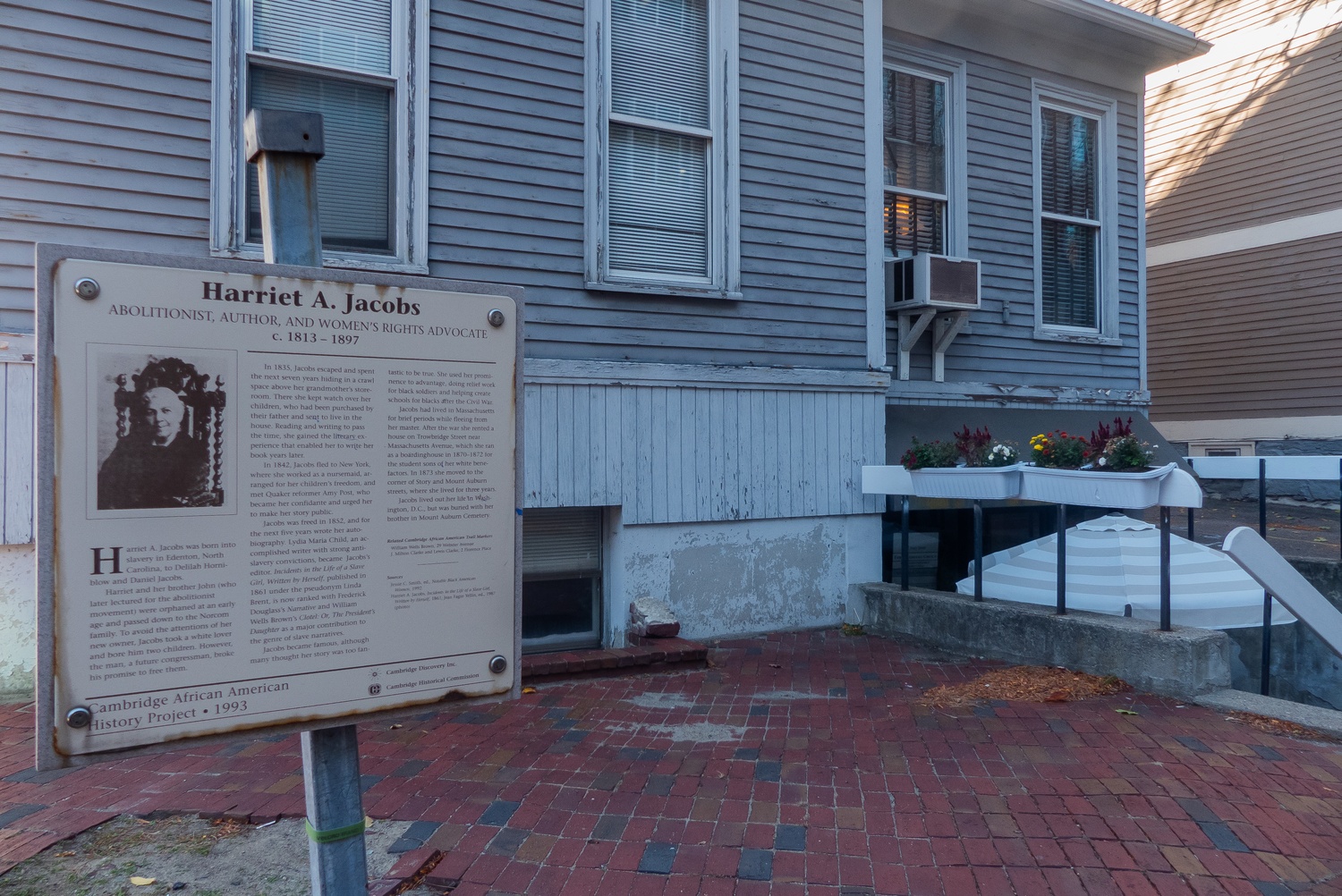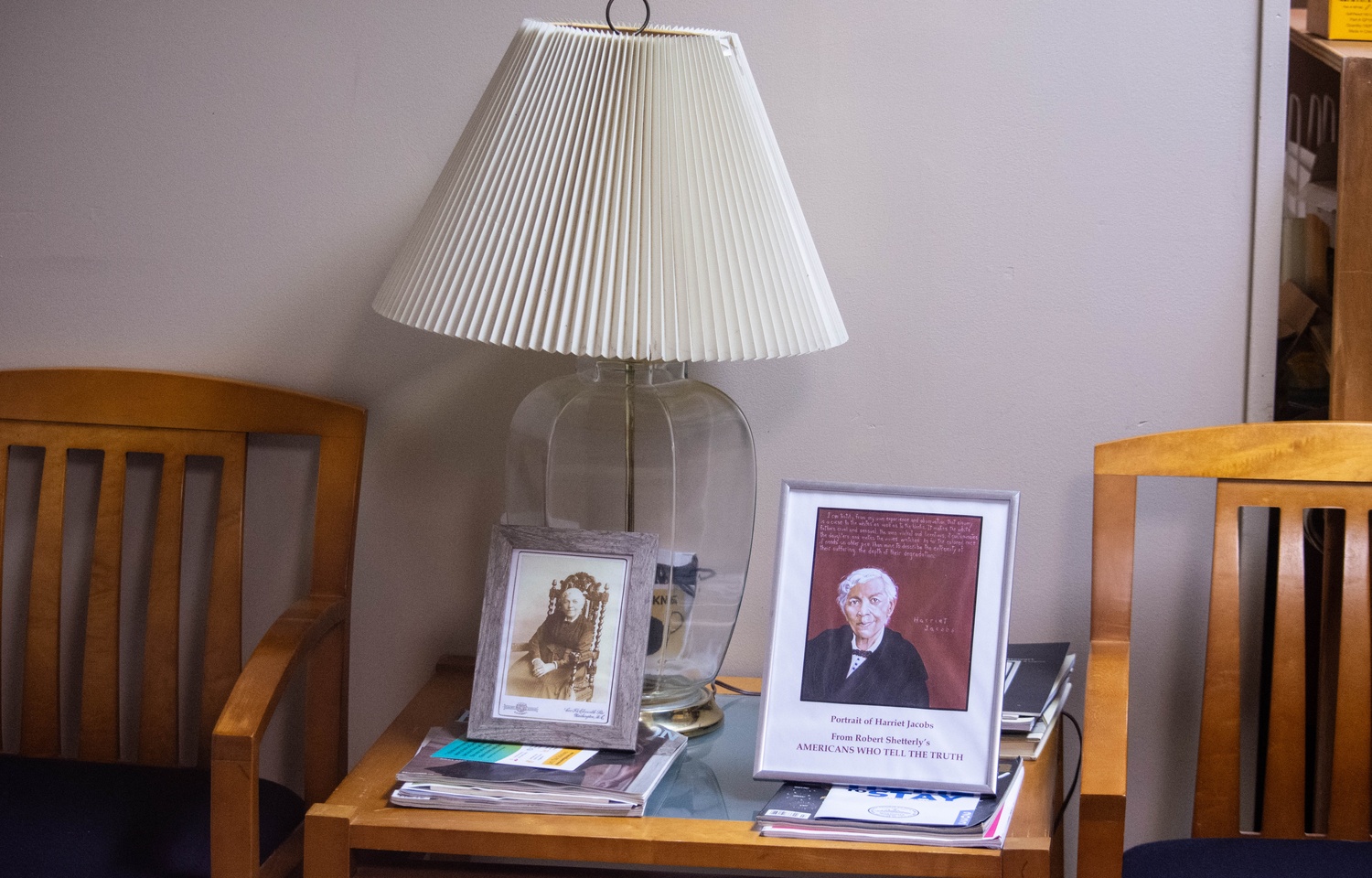
The Fight to Preserve Harriet Jacobs’ Legacy in Cambridge
Updated November 22, 2024, at 3:59 p.m.
When History professor Tiya A. Miles ’92 first read “Incidents in the Life of a Slave Girl” as an undergraduate at Harvard, she found herself awed by Harriet A. Jacobs’ description of her experiences of surviving slavery and sexual assault before escaping to freedom.
“It was the foundation of my career,” said Miles, whose research focuses on the experiences of Black women in slavery.
Jacobs was born into slavery in Edenton, N.C. in 1813. She escaped with her children in 1842 and began working for the abolitionist movement, during which time she published her autobiography under the pen name Linda Brent.
After the publication of her book, Jacobs settled in Cambridge for five years. There, she opened two boarding houses for Harvard faculty, including Christopher C. Langdell, the first dean of Harvard Law School.

Now, more than 150 years later, a committee of activists, historians, and residents — including Miles and University Professor Danielle S. Allen — are working to preserve one of the houses, at 17 Story St., as a memorial and museum about Jacobs’ life and impact.
It has not been an easy battle. Most other historical landmarks in the area, such as the Longfellow House in Cambridge or the Ralph Waldo Emerson House in Concord, are owned by either the original families who inhabited them or trusts or foundations specifically designed to preserve them.
But Jacobs never owned the 17 Story St. property outright, only renting it. Now, the dilapidated building is in private hands, with the owner — Janet Jiang — planning to transform it into a high-end hotel.
Though Jiang maintains that she wants to honor Jacobs in some form, she said she needs to balance it against the financial pressures of Cambridge’s expensive real estate market. Members of the committee are stuck in a precarious position, with few resources, competing incentives, and little real power to achieve their goals.
To Miles and other committee members, the house in its ideal form would commemorate Jacobs’ home “the way that she lived her own life” — keeping it open to the public as a space for education and cultural programming.
“That did not happen because the resources were not available to those various groups to make it happen,” Miles said. “The resources were actually in private hands, and that’s who’s got the house, and we will just have to do the best we can.”
‘Precious Gems’
Before it was slated to become a boutique hotel, the Jacobs house could have been Harvard’s property.
The house had been on the market for years, and in 2020 — just after the 2019 launch of the Harvard & the Legacy of Slavery initiative — University officials began to conduct “preliminary due diligence” on the feasibility of purchasing the property, according to Harvard spokesperson Jason A. Newton.
That initial research “resulted in a need for further and more detailed research related to the history of the property, including its title, the date of its construction, and any affiliated historic significance,” Newton wrote.
Jiang, who ended up buying the property in February 2020, briefly listed it for auction in 2022 — but for Harvard, Newton wrote, “the resolution of these questions and a plan for long-term use had not been sufficiently developed in time to support a decision to acquire.”
If Harvard had been able to complete a purchase, the efforts to memorialize the house would have been backed with the University’s institutional resources — not to mention, a possible slice of the $100 million Harvard committed to redressing its ties to slavery in 2022.
But the house has remained in Jiang’s ownership, and she continued with her plan to turn the property into a boutique hotel — a transformation that would involve moving the house forward on the property and constructing an addition behind it totalling tens of thousands of square feet.
Nicola A. Williams and Christopher Mackin, both of whom rent office space in the boarding house and soon learned of its historical connection to Jacobs, began talking in the spring of 2022 about remaking the space in Jacobs’ memory.
“By this time, Nicola and I were fully engaged,” Mackin said. “Let’s see what we can do to try to make this building something special, you know? Not just a picture of Harriet Jacobs in the lobby or something, but a place where people can learn about the abolitionist history.”
Williams and Mackin formed the Harriet Jacobs Legacy Committee, and, over the past two years, have recruited a group of other advocates and academics — including Miles and Allen — to help raise money and awareness for the building’s restoration.

Their power is limited. Though the house is marked as a historic landmark, the Cambridge Historical Commission only has oversight over its exterior, not its interior or usage. And the committee — which was denied funding from the Harvard & the Legacy of Slavery initiative — lacks the financial resources to buy and repair the run-down building.
Miles said it is disappointing that Cambridge and Harvard have not prioritized maintaining the house and its story.
“Cambridge has these precious gems, and yet we haven’t really taken notice,” Miles said. “We haven’t lavished this building with care. We haven’t used it to amplify Harriet Jacobs’ history and her story. We’ve hardly ever even noticed it.”
Instead, the committee is relying on Jiang’s good-will and collaboration to help memorialize the house as the property undergoes a broader transformation. It is, Miles noted, a tenuous marriage.
“Right now, the person who is in the position to rescue this house is the same person who wants to move it and build a boutique hotel,” Miles said.
Preservation and Profit
According to Jiang, the committee’s goals of historical preservation align with her own.
“Even before the committee was formed, my original — without their influence — my original goal is to also honor Harriet Jacobs,” Jiang said.
Jiang said she even declined the opportunity to sell the property to a condo developer, despite the opportunity to make a handsome profit.
The developer “will just take it all out, make it a very nice condo, and the people will love it here — but then it definitely will not preserve the Harriet Jacobs legacy,” Jiang said.
But she acknowledged that it is “challenging” to balance the historical goals with her obligation to pay back her investors, who have put millions of dollars into the hotel.
“For me to try to do this, but at the same time also make it profitable,” Jiang said, “my investors spend lots of money on this, and I really have to make it work for them, for both ways.”

Mackin acknowledged that Jiang’s commitment to the historical project will only go as far as is financially viable. He added that the committee has to reckon with its lack of any real power over the future of the house.
“What if Janet dies? What if Janet, you know, decides she sells to somebody else?” Mackin said. “We have no rights to enforce what we’re trying to do with the next owner.”
“Since we’re not at the table by right, we’re just there with moral persuasion, which doesn’t get you much at the end of the day,” Mackin added.
Jiang said she understands the arguments based in history, but said she needs the committee to help fundraise for the project. She said she wants to raise money to establish a museum in the hotel’s lobby and community spaces on the ground floor, along with other memorials to Jacobs memory.
“If they can get some fundraising done, then we can make a Harriet Jacobs facility nice and beautiful,” Jiang said. “I definitely want to work with them to make that happen.”
For his part, Mackin said the investment in honoring Jacobs’ legacy would add to the hotel’s profitability.
“Janet understands this at some level, but she needs to be reassured,” Mackin said. “This, if this is done right and tastefully and stuff, it’s going to make the hotel a commercial winner.”
“People are gonna want to stay here because it’s interesting,” he added. “It’s not a Holiday Inn.”
She ‘Changed the Conversation’
No matter how it takes shape, members of the committee say the project is an important opportunity to highlight the underappreciated story of Jacobs and her life in Cambridge.
“Her book, Incidents in the Life of a Slave Girl, was part of what changed the conversation about slavery in this country, and so she’s one of the most important figures for understanding the legacy of slavery,” Allen said. “And her home and the business that she ran as a free woman having escaped from slavery is right smack dab in the heart of Harvard Square.”
Allen’s connection to the house is also personal — her office sits directly across from it.
“I’ve been sitting across the street for 10 years now looking at that building and feeling the pain of it not being appropriately cared for,” Allen said. “It’s been on my mind for a decade.”

Miles added that preserving the Cambridge house was one of the only ways to mount an effective physical memorial to Jacobs.
“It’s precious because it’s a place where this phenomenal woman who left her mark on history and so many people’s lives,” Miles said. “There’s not another building that we know of besides the two in Cambridge where Harriet Jacobs lived.”
While Miles — and the committee at large — remain uncertain about the future of the house, their efforts to raise greater awareness of Jacobs’ story have been successful.
Kyra I. March ’22, who took Miles’ class on Jacobs as an undergrad, was inspired to join the committee by developing an understanding of Jacobs’ life and the role 17 Story St. played in it.
“I just remember standing in front of the house and just being really emotional because Jacobs the story is just so powerful,” March said. “It’s powerful and it’s heartbreaking, it’s moving — and it’s like she triumphed. And at the end of her narrative, she talks about how she was free, and her children were now free, but she still wanted a home of her own.”
While her time in Cambridge was fleeting, and Jacobs moved from Cambridge to Washington D.C. — dying in the city in 1897 — she retained a particular affinity for the Boston area until the end of her life.
“She insisted on being buried at the Mount Auburn cemetery,” Mackin said. “She wanted to be here.”
Clarification: November 22, 2024
This article has been updated to clarify the timing of the Harvard & the Legacy of Slavery initiative.
Correction: November 23, 2024
A previous version of this article mispelled Janet Jiang’s last name.
—Staff writer Asher J. Montgomery can be reached at asher.montgomery@thecrimson.com. Follow her on X @asherjmont or on Threads @asher_montgomery.
—Staff writer Avani B. Rai can be reached at avani.rai@thecrimson.com. Follow her on X @avaniiiirai.
